Artificial intelligence, or AI, is a rapidly growing field that is transforming the way we live and work. From self-driving cars to virtual assistants, AI is already changing the world as we know it. But what exactly is AI, how does it work, and what are the potential benefits and risks? This beginner’s guide will help you understand the basics of AI, Meaning, Definition, Full Form, and its impact on society.
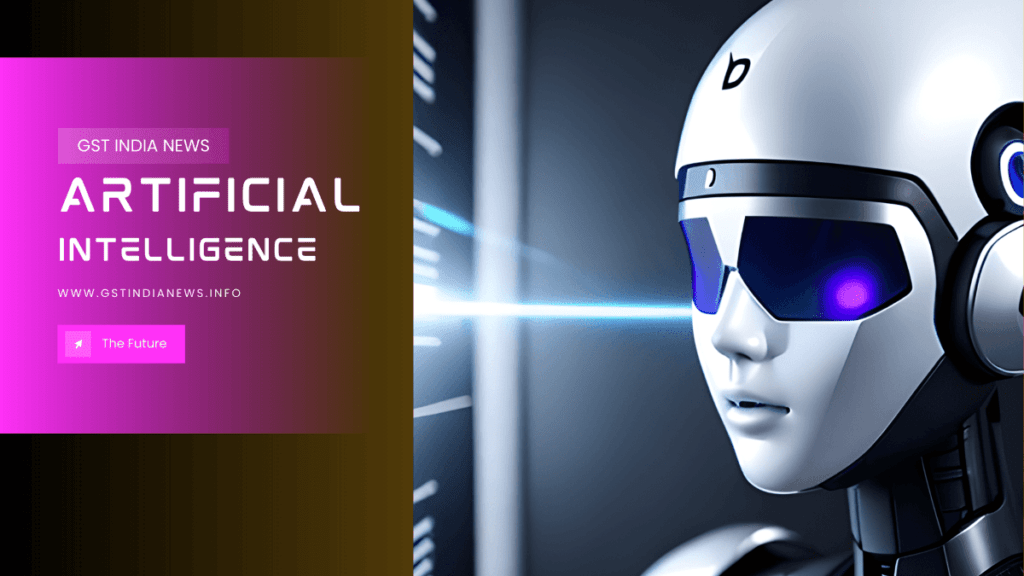
Index
- Introduction
- Meaning >> AI Working >> AI Types
- Industry Applications >> Impact on Society >> Future Business
- Benefits in Business >> Service & Sales >> AI In Marketing
- AI in Business >> Impact on Job >> Industry Affect >> AI in Robots
- Job Opportunities >> AI in Healthcare >> Treatment Plans >> Early Detection
- Administrative Tasks >> Enhancement >> FAQ
What is Artificial Intelligence?
Artificial Intelligence (AI) refers to the ability of machines to perform tasks that would normally require human intelligence, such as learning, problem-solving, and decision-making. Thus, Artificial intelligence is the short form of AI and the full form of AI stands for Artificial Intelligence.
AI technologies include machine learning, natural language processing, and computer vision, among others. These technologies are being used to automate processes, improve efficiency, and create new business models across a wide range of industries.
How does AI work?
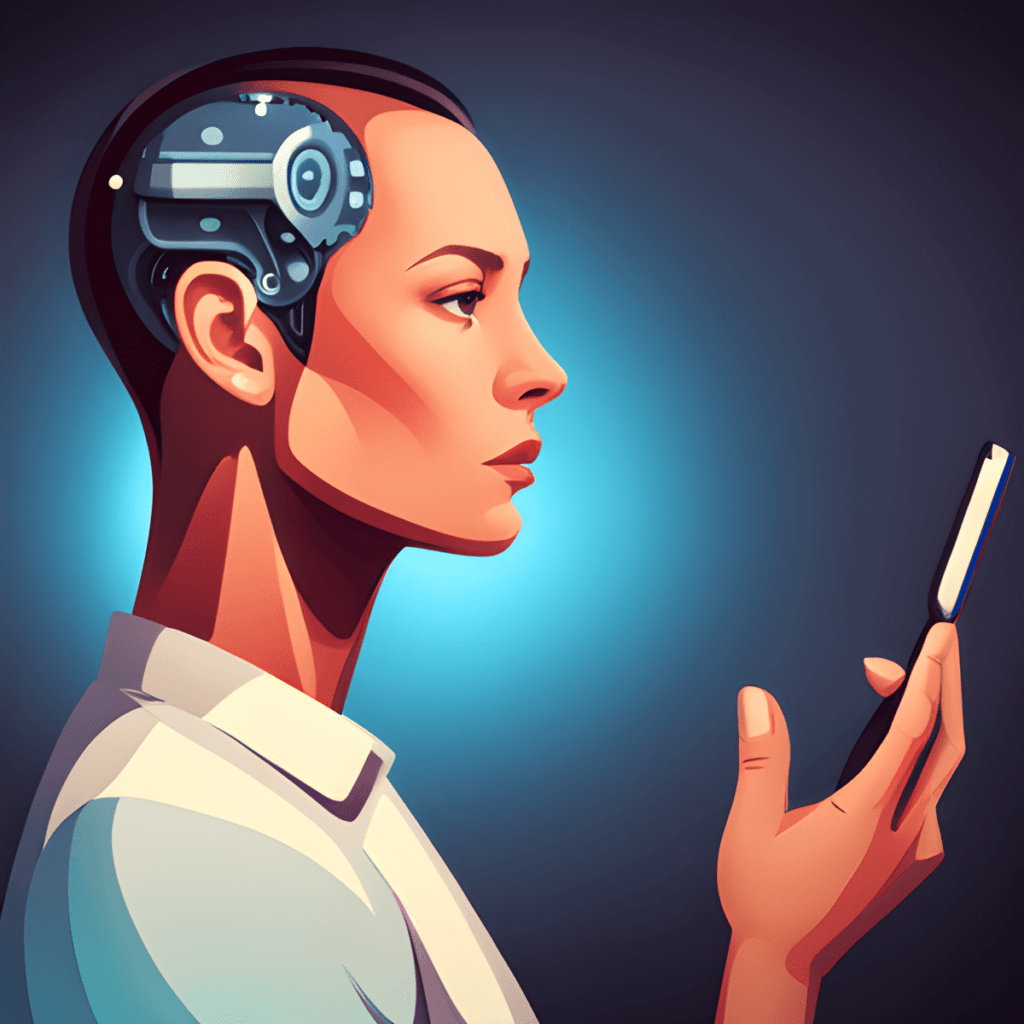
AI works by using algorithms and machine learning to analyze data and make decisions or predictions based on that data. It involves teaching machines to learn from experience, just like humans do. Thus, businesses will use the training method, where they will feed large amounts of data to machines. This will further learn to recognize the patterns and make predictions on the basis of that data. The more data the machine is trained on, the more accurate its predictions become. AI can also be programmed to learn from its mistakes and improve over time, making it a powerful tool for a wide range of applications.
Types of AI: Machine Learning, Deep Learning, and Neural Networks.
There are several types of AI, including machine learning, deep learning, and neural networks. Artificial intelligence (AI) is a broad field that encompasses many different types of technology. One of the most exciting areas of AI is machine learning, which involves training computers to learn from data without being explicitly programmed. Deep learning is a subset of machine learning that uses neural networks to recognize patterns in data and make predictions based on those patterns. While each type of AI has its own strengths and weaknesses, they all have the potential to revolutionize the way we live and work.
Applications of AI in various industries.
Artificial intelligence has the potential to revolutionize various industries, from healthcare to finance to transportation. Artificial intelligence (AI) has a wide range of applications across various industries. In healthcare, AI can assist in the analysis of medical images and aid in the diagnosis of diseases. In finance, AI can be utilized to detect fraudulent activities and make informed investment decisions. Additionally, in transportation, AI can help improve traffic flow and reduce the number of accidents on the road.
Other industries that can benefit from AI include education, retail, and manufacturing. As AI technology continues to advance, we can expect to see even more applications in various industries.
The potential impact of AI on society and ethical considerations.
While the potential benefits of AI are vast, there are also ethical considerations to take into account. For example, there are concerns about job displacement as AI technology becomes more advanced and replaces human workers. There are also concerns about privacy and data security, as AI relies on vast amounts of data to function. Additionally, there are concerns about bias and discrimination in AI algorithms, as they can reflect the biases of their creators and perpetuate existing inequalities. It is important for society to consider these ethical implications and work towards responsible and equitable implementation of AI technology.
How Artificial Intelligence is Changing the Future of Business?
Artificial intelligence (AI) is transforming the business world, with companies using it to automate processes, improve decision-making, and enhance customer experiences. From chatbots to predictive analytics, AI is changing the game in many industries. But what does this mean for the future of business, and how can companies stay ahead of the curve?
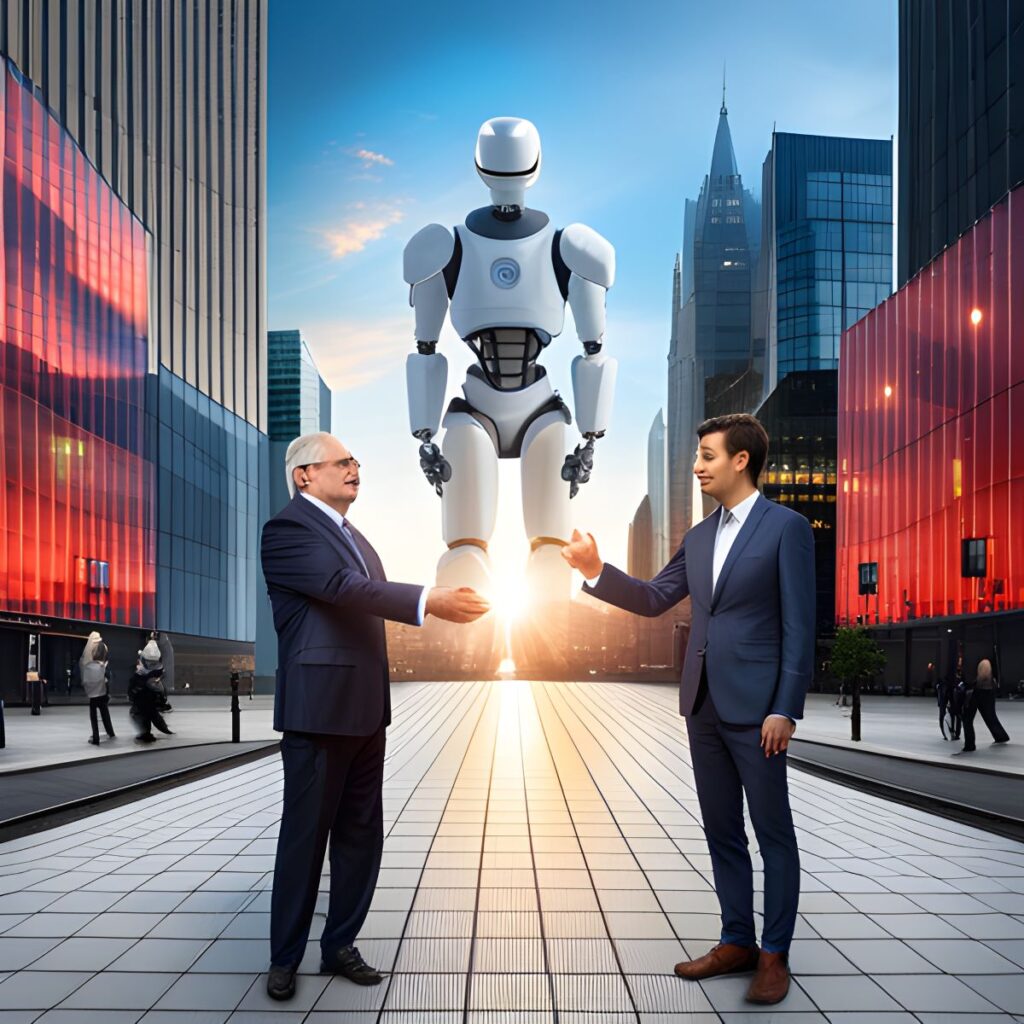
AI in Business: The Benefits and Challenges.
The use of AI in business has many benefits, including increased efficiency, improved decision-making, and cost savings. However, there are also challenges to consider, such as the potential for job displacement and the need for ethical considerations in the use of AI. As AI continues to evolve and become more integrated into business operations, it will be important for companies to carefully consider both the benefits and challenges in order to make the most of this technology.
AI in Customer Service and Sales.
One area where AI is already making a significant impact is in customer service and sales. Chatbots and virtual assistants powered by AI can provide 24/7 support to customers, answering common questions and resolving issues quickly and efficiently. AI can also analyze customer data to provide personalized recommendations and improve the overall customer experience. In sales, AI can help identify potential leads and provide insights into customer behavior and preferences, allowing businesses to tailor their approach and increase conversions.
AI in Marketing and Advertising.
AI is also transforming the world of marketing and advertising. With the ability to analyze vast amounts of data, AI can help businesses better understand their target audience and create more effective marketing campaigns. AI-powered tools can analyze consumer behavior and preferences, allowing businesses to create personalized ads and content that resonates with their audience. AI can also help optimize ad placement and targeting, ensuring that businesses get the most out of their advertising budget. As AI continues to evolve, it’s likely that we’ll see even more innovative uses of this technology in the world of marketing and advertising.
Artificial Intelligence in Robot
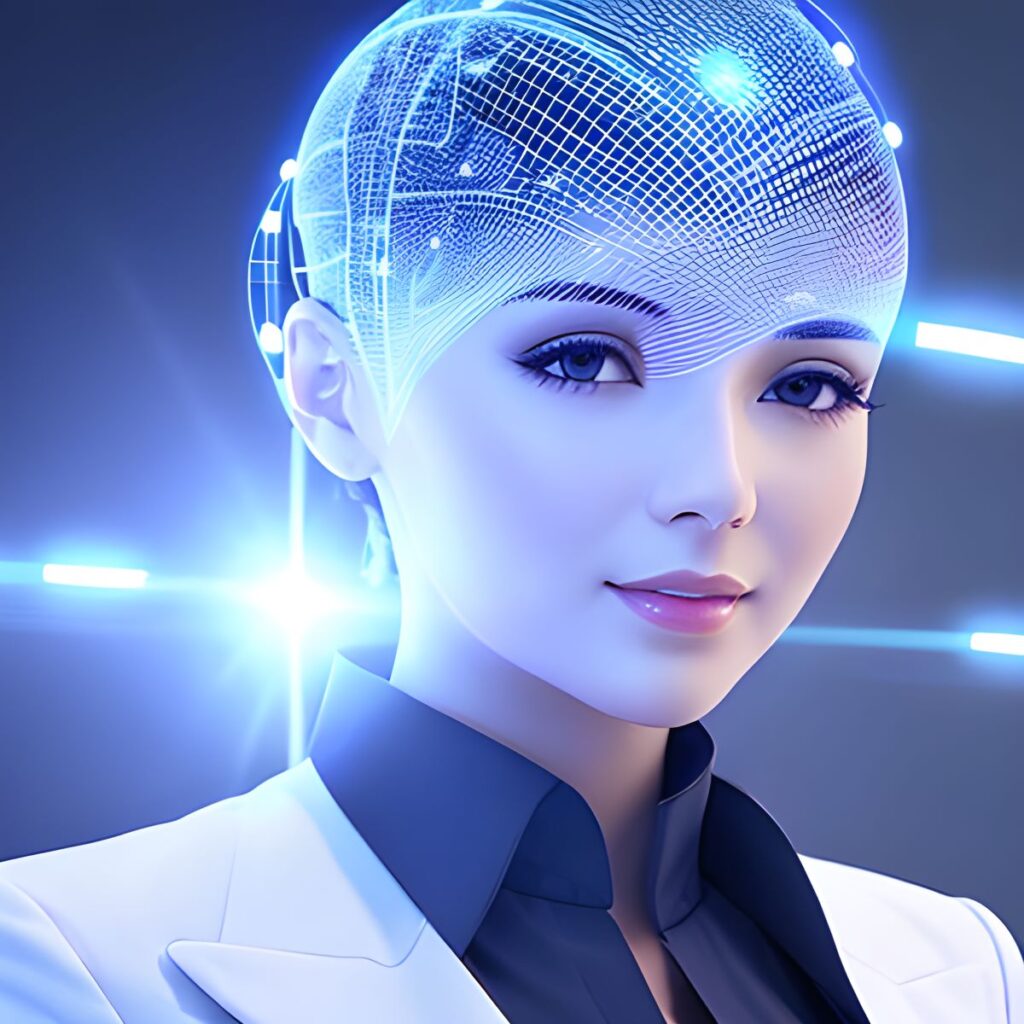
Artificial intelligence (AI) has come a long way since its inception in the 1950s. Originally designed for industrial use in factories, robots were limited to performing repetitive tasks based on trained inputs. However, with the integration of machine learning and AI, robotics has evolved to attain a human-like vision, enabling it to detect potent stimuli. Today, it is difficult to find a sector where robotics is not used, and the global scenario has widely changed. The evolution of robotic intelligence has shown a wide range of hierarchies, and the skillful integration of AI and robotics has advanced the ambit of robotic intelligence. This integration involves huge algorithms and datasets to evolve the potential of robotics into a human-like vision.
The Future of AI in Business.
The future of AI in business is bright, with endless possibilities for innovation and growth. As AI technology continues to advance, businesses will be able to automate more processes, improve decision-making, and create more personalized experiences for their customers. However, it’s important for businesses to approach AI with caution and ensure that they are using it ethically and responsibly. As AI becomes more integrated into our daily lives, it’s crucial that we prioritize transparency, accountability, and fairness in its development and implementation.
The Impact of Artificial Intelligence on the Job Market
Artificial intelligence (AI) is rapidly transforming the job market, with many industries already feeling the impact. From healthcare to finance, AI is changing the way we work and the skills we need to succeed. But what does this mean for the future of work, and how can we prepare for the changes ahead?

Introduction to AI and its impact on the job market.
Artificial intelligence (AI) is a rapidly growing field that is changing the way we work and live. AI refers to the ability of machines to perform tasks that would normally require human intelligence, such as learning, problem-solving, and decision-making. As AI technology continues to advance, it is having a significant impact on the job market, with many industries already feeling the effects. In this article, we will explore the ways in which AI is changing the job market and what it means for the future of work.
Industries that are being affected by AI.
AI is impacting a wide range of industries, from healthcare to finance to transportation. In healthcare, AI is being used to analyze medical images and assist in diagnosis. While in finance, it is being used to detect fraud and automate trading. In transportation, self-driving cars and trucks are becoming a reality, which could have a significant impact on the job market for drivers. Other industries that are being affected by AI include customer service, manufacturing, and education. As AI technology continues to advance, it is likely that even more industries will be impacted in the future.
Jobs that are at risk of being replaced by AI.
With the rise of artificial intelligence, many jobs are at risk due to AI automation. Jobs that involve repetitive tasks, such as data entry, assembly line work, and customer service, are particularly vulnerable. In addition, the impact will be on jobs that require a high level of accuracy and precision, such as accounting and legal work. However, it’s important to note that while some jobs may be replaced by AI, new jobs will also be created in industries. This is related to AI development and maintenance. It’s important for individuals to stay informed about the impact of AI on their industry and to develop skills that will be in demand in the future job market.
New job opportunities created by AI.
While some jobs may be at risk of being replaced by AI, new job opportunities are also being created in industries related to AI development and maintenance. These jobs include roles such as AI engineers, data scientists, and machine learning specialists. In addition, as AI technology continues to advance, there will be a growing need for individuals with skills in areas. Thus, areas include cybersecurity, ethics, and regulation. It’s important for individuals to stay informed about these new job opportunities. Also, needs to develop the skills necessary to succeed in the evolving job market.
Preparing for the future of work in the age of AI.
As artificial intelligence continues to impact the job market, it’s important for individuals to prepare for the future of work. This means developing skills that are in demand in industries related to AI, such as data analysis, programming, and machine learning. It also means staying informed about the latest developments in AI technology and how they may impact different industries. Additionally, individuals should consider pursuing education and training programs that can help them stay ahead of the curve in the evolving job market. By taking these steps, individuals can position themselves for success in the age of AI.
Artificial Intelligence is Revolutionizing Healthcare
Artificial intelligence (AI) is rapidly changing the healthcare industry, with new applications and technologies emerging every day. From improving patient outcomes to streamlining administrative tasks, AI is delivering healthcare facilities in a revolutionary way. Here are five ways AI is transforming healthcare.
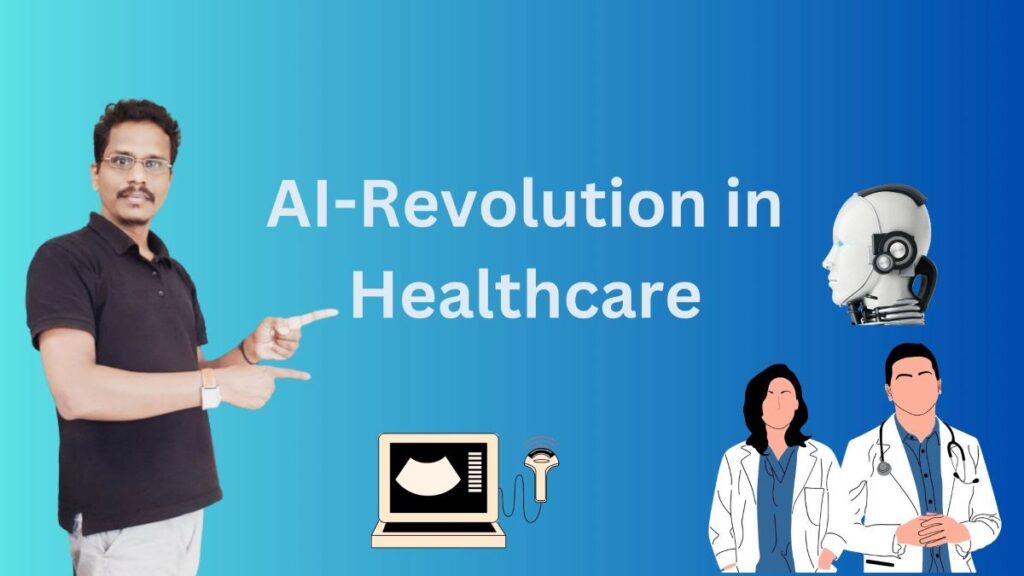
Personalized Treatment Plans.
AI is enabling healthcare providers to create personalized treatment plans for patients. This can be based on their unique medical history, genetics, and lifestyle factors. By analyzing large amounts of data, AI algorithms can identify patterns and make predictions about a patient’s health. This will allow doctors to tailor treatments to their specific needs. This can lead to better outcomes and more efficient use of resources.
Early Detection and Diagnosis.
One of the most promising applications of AI in healthcare is the early detection and diagnosis of diseases. By analyzing large amounts of medical data, AI algorithms can identify patterns and warning signs that human doctors may miss. This can lead to earlier diagnosis and treatment of diseases, which can improve patient outcomes and save lives. For example, AI-powered tools are in the development stage to detect early signs of Alzheimer’s disease. This could have led to earlier interventions and better outcomes for patients.
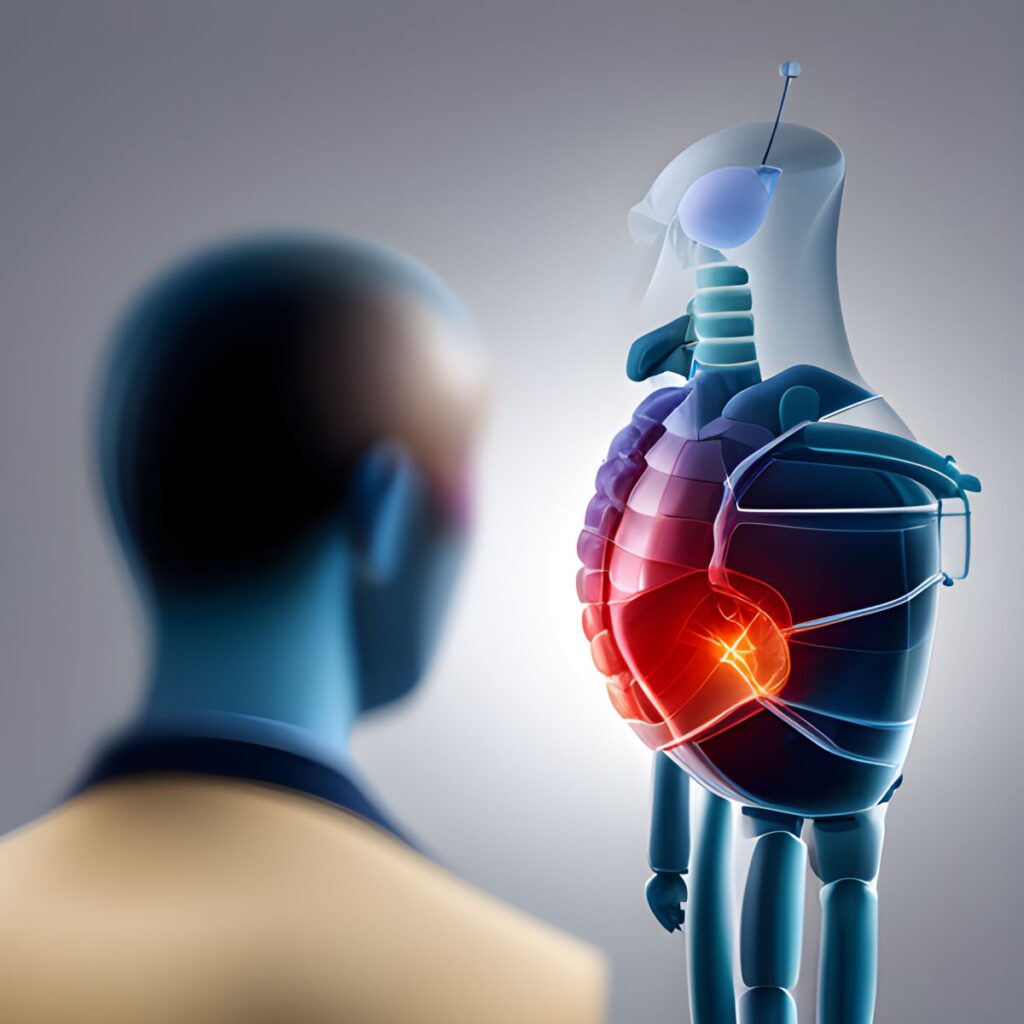
Streamlined Administrative Tasks.
Another way AI is revolutionizing healthcare is by streamlining administrative tasks. AI-powered tools can automate tasks such as appointment scheduling, medical record keeping, and insurance claims processing. This not only saves time for healthcare providers but also reduces the risk of errors and improves the overall efficiency of the healthcare system.
Further, AI can help identify areas where the utilization of resources is under or over the level of its requirements. Thus, it will allow for better allocation of resources and improved patient care.
Improved Patient Outcomes.
One of the most significant ways that AI is revolutionizing healthcare is by improving patient outcomes. AI-powered tools can analyze vast amounts of patient data, including medical records, lab results, and imaging studies, to identify patterns and make predictions about a patient’s health. This can help healthcare providers make more accurate diagnoses, develop more effective treatment plans, and monitor patients more closely. Additionally, AI can help identify patients who are at high risk for certain conditions, allowing for early intervention and prevention. Overall, AI is helping to improve the quality of care and outcomes for patients across the healthcare system.
Enhanced Medical Research.
Another way that artificial intelligence is revolutionizing healthcare is by enhancing medical research. AI-powered tools can analyze vast amounts of data from clinical trials, medical journals, and other sources. Thus it will identify patterns and insights that human researchers sometimes may miss. Also, this can help accelerate the pace of medical research and lead to new treatments. As a result, AI will bring cures for a wide range of conditions.
Secondly, AI can help researchers identify patients who may be good candidates for clinical trials. Thus it will make them easier to recruit participants and speed up the research process. Overall, AI is helping to unlock new insights and accelerate medical research in ways that were previously impossible.
Conclusion
By now after going through the above article you must have got the Answers to your basic questions like the full form of Artificial Intelligence. Besides this, you must have learned the actual meaning of AI with its definition. Therefore, this is how the computer artificial intelligence is growing and it can expand beyond our imagination. As of today, you can get many companies that are already using AI Tools to generate Text to images, Essays, Content Writing, chatbot, logo designing, and much more. So stay updated on AI to keep yourself updated.
Frequently Asked Questions on AI in 2023
Artificial intelligence
AI can not only save a lot of human effort but also will be helpful get accurate results in research and healthcare sectors.
It is difficult to attribute the invention of AI to a single individual because it has evolved over time through the collective efforts of many scientists and engineers.
Yes but not fully.
Yes, especially repetitive jobs. However, it will also generate new opportunities.
